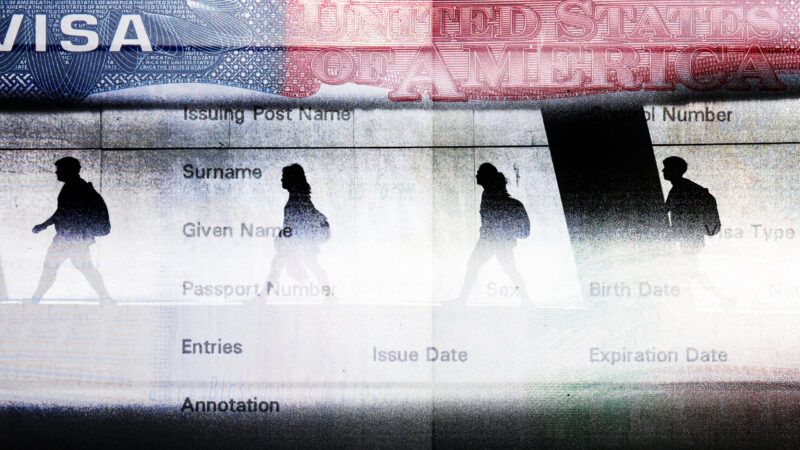Foreign-Born Religious Workers Are Trapped in a Green Card Backlog
Without a fix, churches and other places of worship could lose their clergy.

This holiday season, thousands of foreign-born religious workers find themselves unsure whether they'll be allowed to continue serving their communities in the coming years thanks to a backlog in green card applications. Religious leaders are pushing for solutions as the Trump administration prepares to take office next month.
Many churches and other places of worship rely on foreign-born religious workers to provide services, particularly as fewer native-born Americans enter the vocation. "From 1970 to 2020, the number of priests in the U.S. dropped by 60%, according to data from the Georgetown [University Center for Applied Research in the Apostolate]," reported the Associated Press in 2021. "This has left more than 3,500 parishes without a resident pastor."
Foreign religious workers come to the U.S. on R-1 visas, which provide a temporary pathway for "ministers and non-ministers in religious vocations and occupations." The R-1 visa is valid for five years, at which point the holder must either petition for permanent residence status or leave the country for at least a year and apply for a new R-1 visa.
Following a spring 2023 State Department change in green card allocation, religious workers began facing long wait times. The Biden administration started processing neglected and abused immigrant kids in the same green card queue as religious workers, meaning they were competing for the same limited number of green cards—just 10,000 per year. Roughly 100,000 immigrant kids joined the pool. As of this August, the A.P. noted, the backlog "stands at more than 3.5 years and could increase"—potentially up to a decade or more.
Five foreign-born priests and the Catholic Diocese of Paterson, New Jersey, sued the federal government in August over the 2023 change and the long wait times it created. Without relief, the lawsuit argued, the priests would have to "remain unlawfully in the United States" or leave the country and "abandon thousands of Roman Catholics that each Individual-Plaintiff spiritually guides." They would then have to "wait years, if not decades, outside of the United States" before seeking another R-1 visa "to return to their religious calling."
Earlier this month, several anonymous sources told The Pillar, a news site that covers the Catholic Church, that "bipartisan legislation is in the works to address the problem, and is expected to be introduced early next year." An interfaith group listed several potential fixes in a letter to the Department of State and the Department of Homeland Security last year, such as increasing the number of available visas, reducing the amount of time an R-1 holder must spend outside the U.S. before applying for a new R-1 visa, and extending the term of an R-1 visa beyond five years. The letter also called for Congress to exempt neglected and abused immigrant kids from visa limitations.
"Religious workers provide innumerable services to American communities, including culturally competent religious instruction and rituals, as well as direct social services to those in need," wrote Rev. Mark J. Seitz, bishop of El Paso and chairman of the U.S. Conference of Catholic Bishops' Committee on Migration, in a letter to Congress last summer.
"Unfortunately," he continued, "the current situation violates both Congress' intent to provide religious organizations and our communities with needed workers and its express desire to protect vulnerable immigrant youth."


Show Comments (41)